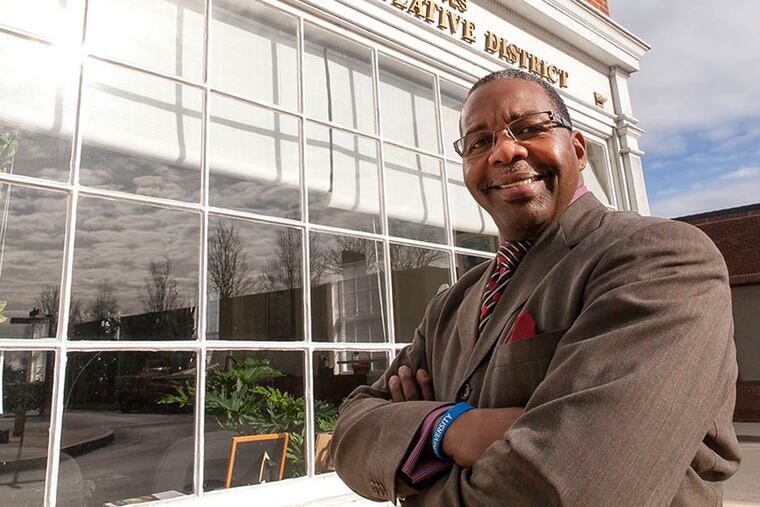Taking aim at tensions, Chester cops add body cameras
When six police officers fired nearly 100 bullets at Shalamar Longer in February, killing him after a police chase through Chester, the violence-ridden city found itself in the cross fire of a debate playing out in other places across the country in recent years.

When six police officers fired nearly 100 bullets at Shalamar Longer in February, killing him after a police chase through Chester, the violence-ridden city found itself in the cross fire of a debate playing out in other places across the country in recent years.
Residents called the shots excessive. Police called them justified.
And convincing evidence was lacking for either viewpoint.
On Monday, Chester City officials said they hoped to avoid such situations in the future - starting with the rollout of a body-camera program for the city's police department, scheduled to take effect immediately.
Announced at a news conference at police headquarters, the initiative comes amid a period of tension between police and the community of 34,000. After police shot and killed Longer and another Chester man within five weeks of each other, residents demanded more accountability and transparency.
Chester police, however, confront a monumental task: So far this year, police have responded to nearly 27,000 calls in the four-square mile city - nearly seven per hour. Many of those involved violent crimes, increasing the opportunities for dicey police encounters.
Chester's program - which will begin with a pilot phase for 10 of its patrol officers - aims to reduce those encounters by making citizens and police aware that they could be caught on camera.
"We strongly believe that creating and engaging in new practices will help to create a level of transparency and credibility between our community and the police department," said Mayor Thaddeus Kirkland in announcing the program.
Across the country, cities and towns, including Philadelphia and Camden, have rolled out similar programs within their departments, and have been met with favorable results.
And while the technology is relatively new, recent studies have suggested that body cameras can foster better relations between police and their communities.
Separate studies in San Diego and Rialto, Calif., found that body cameras significantly reduced complaints and incidents of force by police.
But the technology also leaves room for error, experts say. Some body camera models, such as the ones to be used in Chester, do not automatically begin recording, requiring officer activation. Officers could forget to turn on the camera when confronted with a sudden and violent scene, experts say, or, at worst, the officers could intentionally avoid turning them on.
Chester hopes to eventually use automatic cameras. But for now, police officers will be required to switch on their cameras - located either on their chests or on their glasses - during enforcement-related activities or when incidents in which they are involved turn "confrontational," according to the first draft of the department's policy.
No video records involving an arrest can be erased, the policy states, and all such recordings require a detailed review and decision by the force's commissioner.
Michael Broder, a psychologist who spent five years as the Philadelphia Police Department's stress manager, said switching on body cameras could become part of routine for officers, but "there will be times when you don't do it."
"Sometimes, cops have less than two seconds to make a life-and-death decision," Broder said.
In Chester, Kirkland said, the goal is to equip all 65 of the force's patrol officers with cameras - a price tag he estimates between $70,000 and $100,000. The city is seeking private donations for the project.
For now, he said, the city is testing different models on the initial 10 officers - currently, the force is testing cameras from Taser International, an Arizona-based technology company. The pilot program was paid for by a $10,000 donation by Vahan Gureghian, CEO of CSMI, the management company for Chester Community Charter School.
"This is about accountability for officers, and also for our citizens," Kirkland said. And now that the rollout has begun, he said, "the criminals know that big brother is watching."
610-313-8113
@mccabe_caitlin